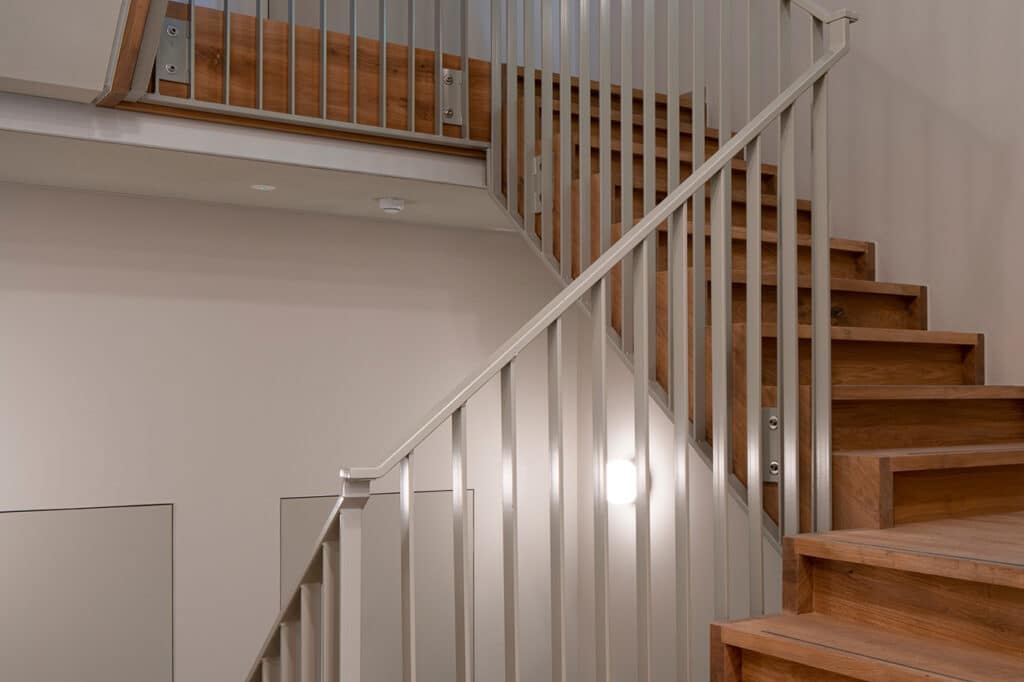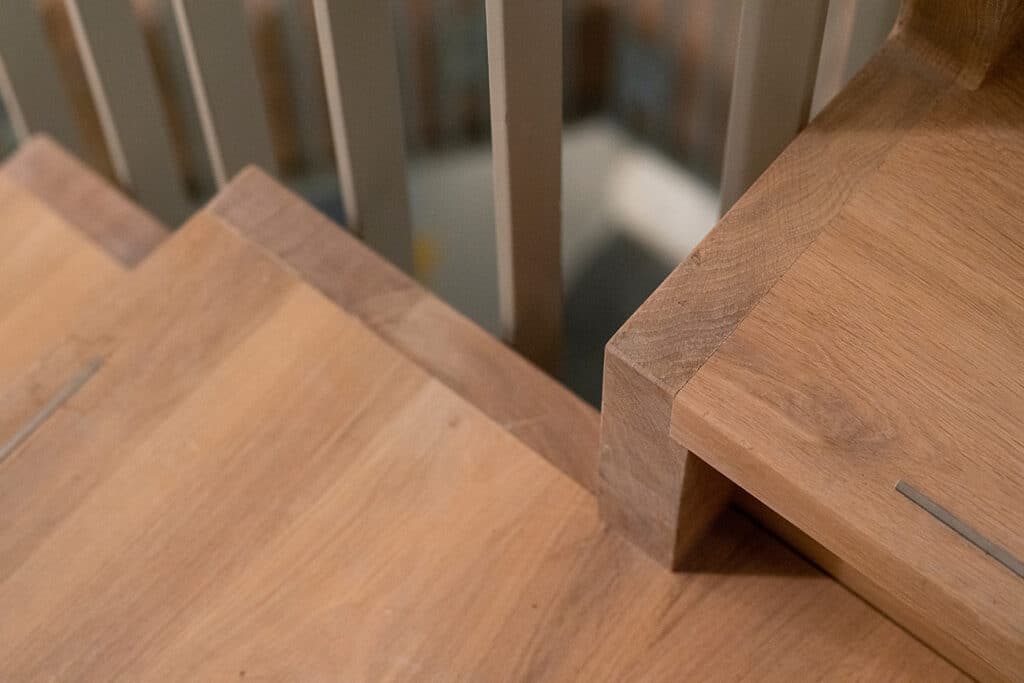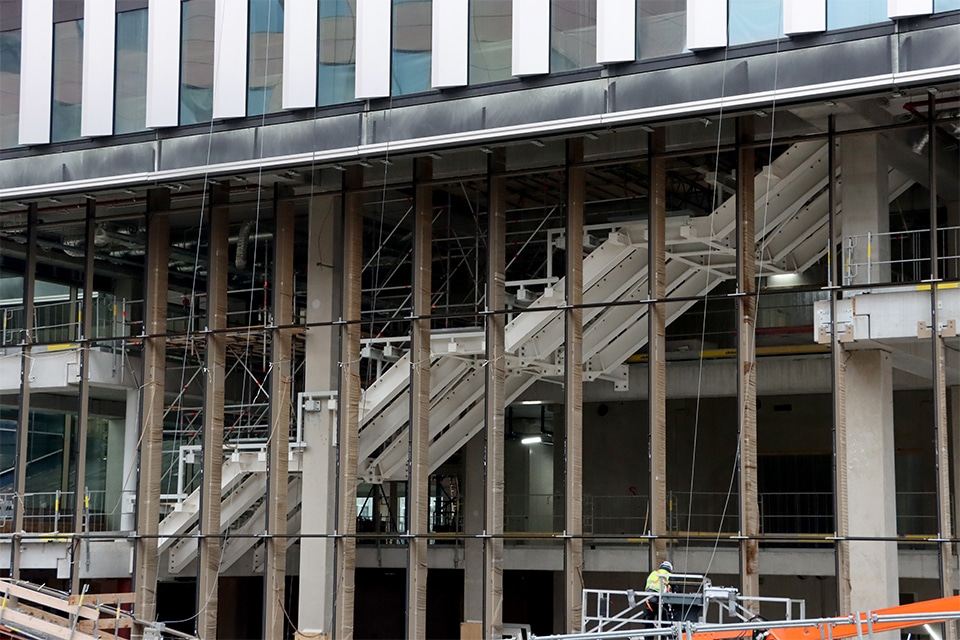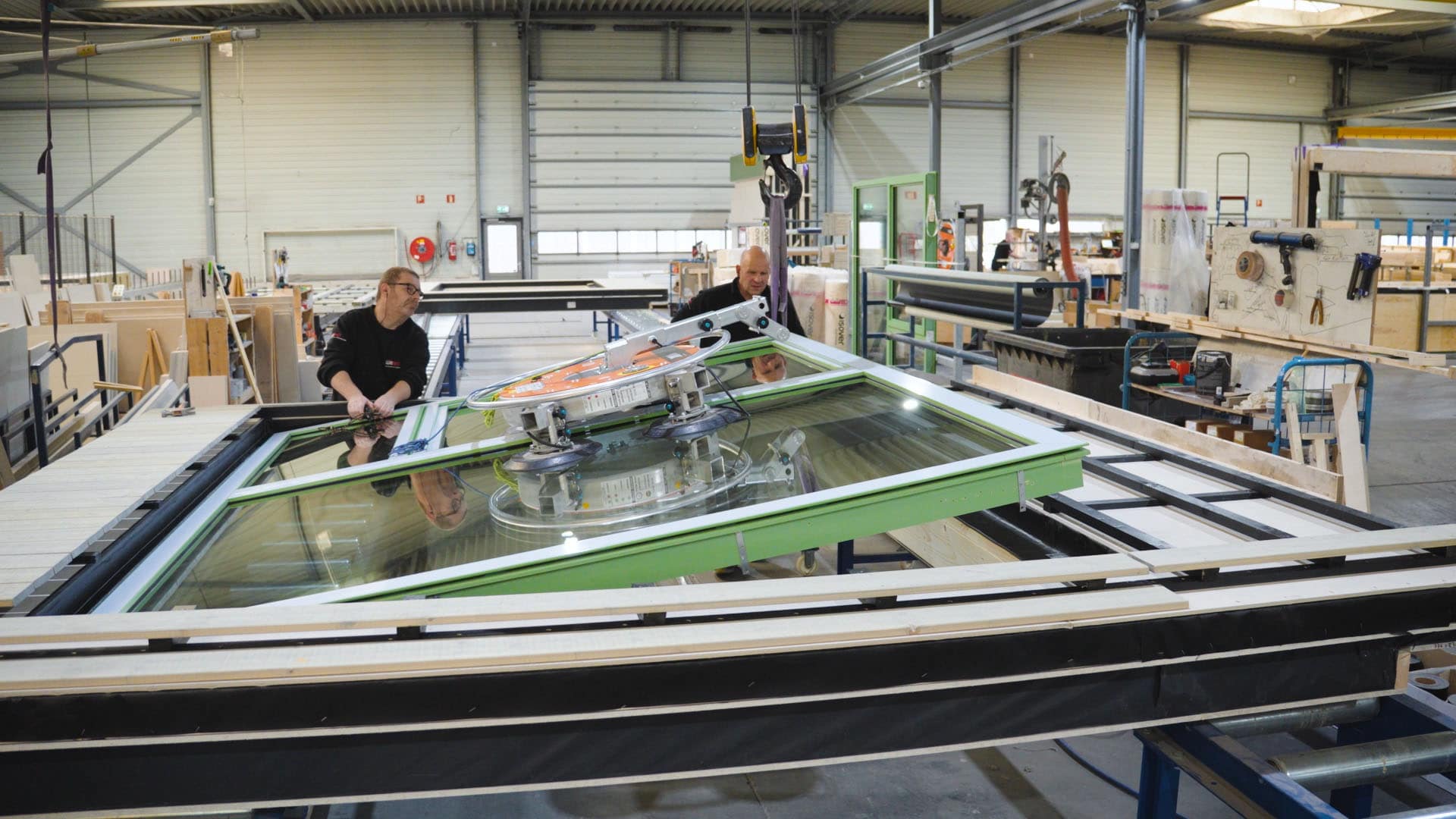
Special stairwell for National Holocaust Museum
Stairs make the entire museum accessible
Inside the National Holocaust Museum, six staircases lead visitors around. The standout is the stairwell, which consists of straight staircases interrupted by landings and mezzanines. From the first floor, they go up to a height of eight meters. Mebu Stairs used enough manpower and clever solutions to pull this off.

"The assembly required the necessary expertise and experience. For example, to reach the highest point, we worked with hoists suspended from temporary auxiliary structures," says Rik van der Ploeg, director and co-owner of Mebu. This was commissioned by Bouwbedrijf M.J. de Nijs en Zonen B.V., which is an old acquaintance of the stair company. "For De Nijs we usually do a lot of work, which ranges from a simple attic staircase to very detailed staircases like at the Holocaust Museum," Van der Ploeg said.
Modern design
Here, solid oak stairs were chosen that wrap around a loft, so you can see from the bottom to the top floor. The staircases were given a modern design, with the trees executed as sawtooth. That is, corners were cut out of the tree, on which the treads rest. The underside of the stairs were tightly plastered away, so that the lower steps are no longer visible. Steel railings were installed on the inside, which were attached to the sides of the stair stringers. To bring out the texture of the oak, the stairs were treated with a white wash oil.

"We have now finished the assembly and the process went very well," says Van der Ploeg. "The architect had a certain image in mind and we pursued that as best we could. In doing so, we did have to think about feasibility. Sometimes concessions then had to be made on both sides, but together we arrived at a very nice whole."
Special assignment
Mebu stairs looks back on a successful cooperation with a beautiful end result. All agreements made have been fulfilled. "Besides making such a cool staircase, we as a company also find it special that we may contribute to the Holocaust Museum. A museum that stands in memory of all the Jews murdered during World War II. Something that in our eyes should never be forgotten."




